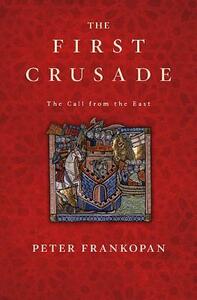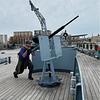Take a photo of a barcode or cover
informative
fast-paced
Trying to find the right balance between memory and facts - a major obstacle for any writer of historical nonfiction- achieves something more: gives well-deserved justice to key „heroes” he writes about.
He approaches the story from both major angles or dimensions: western and eastern. We used to learn a lot about the response (pope Urban etc.) - finally we pay attention to the cause - Alexios’ call.
Maybe not much comprehensive source, but certainly a great point for own further explorations.
He approaches the story from both major angles or dimensions: western and eastern. We used to learn a lot about the response (pope Urban etc.) - finally we pay attention to the cause - Alexios’ call.
Maybe not much comprehensive source, but certainly a great point for own further explorations.
informative
fast-paced
I didn't know much detail about this period of history, so there was a lot of hearing about something for the first time when you're being told it's wrong, which is funny. Lots of really interesting anecdotes and he's a very engaging historical writer. Didn't rock my world but was interesting
Frankopan reframes the well-traveled narrative of the First Crusade to concentrate on the Byzantine empire and its leader, Alexios Komnenos, who, faced with the collapse of Asia Minor and rebellious nobles at home, reached out to the west (despite the religious fracture of 1054) and created a wave he planned to direct and control. Frankopan is a skillful interpreter of the notoriously difficult Alexiad of Anna Komnene and the Crusader chronicles to find a reasonable interpretation of what happened from the Byzantine point of view.
challenging
informative
medium-paced
adventurous
challenging
informative
reflective
medium-paced
informative
medium-paced
This is the best book that I have read about the Crusades. It takes the story of the first crusade from the Eastern perspective. I found it so well researched and it is very accessible. A great read.
informative
medium-paced
When, in November 1095, Pope Urban II preached at Clermont, France, in about the need for a crusade to recover Jerusalem from the Muslims, it was partly to boost his own standing (he was one of two alternative popes, the other having control of Rome) and partly in response to a call for help from Byzantine emperor Alexios I Komnenos. This book rewrites the myths to show how important Alexios was to the ultimately successful campaign to retake Jerusalem. Even though he was never physically present, preferring to lead from Constantinople, and was therefore accused of cowardice (unfairly, as a soldier before he became emperor and subsequently as emperor he often led his armies in the field) and sidelined by a history mostly written by the westerners, nevertheless his contribution to the logistics, ensuring that the armies were almost always well-provisioned, was crucial.
This book is therefore an important contribution to the history of those times, as well as being immensely readable. Of all the characters, my favourite is the immensely brave and hugely talented soldier Bohemond who decided to keep Antioch for himself thus provoking a crisis in the leadership of the allies. When Bohemond returned home to the west he needed to pass through waters controlled by Byzantium. “Bohemond was so convinced that the emperor would take revenge for his treachery during the Crusade that he travelled home in secret. He even spread reports that he had died and had a coffin designed which purported to be carrying his corpse. As his ship passed through imperial waters, he lay in his sarcophagus alongside a dead chicken whose rotting carcase lent the coffin a powerful and unmistakable smell of death.” (Ch 10)
Readable and interesting. June 2024; 206 pages
informative
medium-paced






